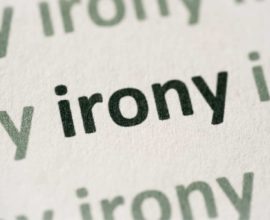How to Find the Right Theme for your Book
What is the one thing that makes a book stand out among the plethora of books in the market? What makes a reader recommend a book to their peers?
There are many factors that influence a reader’s purchase, like a captivating title, an attractive book cover, a remarkable blurb and great reviews. But, the aspect that answers both of these questions mentioned above, is the theme of a novel. A book’s theme emerges as the sole factor that will make a reader cherish and recommend a novel.The theme of a novel is the essential topic or issue a book addresses. We can classify themes into two broad categories, viz. thematic concept and thematic statement. While a thematic concept is something that readers think and perceive about a novel, the thematic statement is what the book actually says about its characters and story.
If one has followed top Goodreads reviewers or book bloggers, they will know books that have great ratings are those with a unique theme. In short, if one chooses the right theme for their book, the novel is sure to be a hit among the masses.
So, which comes first – the theme or the story?
The classic ‘egg or hen’ scenario — when one aspiresto become an author, they always wonder if the story or the theme should be decided first. A writer can go either way, as both methodologies are right.
Some writers decide on the theme, research on it, and then finalise a story. On the other hand, some writers have a story in mind, so they write a draft and then pick a theme that suits their story.
The theme is the “Why?”
Why are you writing this story? Why do you want readers to read your novel? Why are your characters behaving this way? Why is your story ending this way? The theme of your novel is the answer to all these questions.
A wise decision would be to buildthe story and themesimultaneously. You can start with a plot, decide on a suitable theme, and build your story around it.
Theme and Character Arc
You have a story in mind, and a framework of some characters in the story. Now, you have to decide the character arc. A character arc is how a character’s behaviour and actions transform over the course of a novel. To write a book that strikes a chord with your readers, the story must have a professional character arc. This should also be in correspondence to the story’s developments.Your novel’s theme will be the trigger for building your character’s behaviour and transformation.
Need vs. Want – Theme vs. Plot
Another perfect analogy on theme and plot is the need and want debate. As we all know, a novel revolves around characters. What your characters want, becomes the plot of the novel and what they need is the theme of the novel.
It’s easier said than done. When you sit down to write, you will realise that there is only a fine line between the need and want here.
Let us explain in an elaborate manner.The plot is something that your character believes he needs—this can be a solution to a murder mystery, a happy ending or a professional achievement. The story will revolve around this. However, your characters may or may not need it. In depth, these are only desires and wants but not the need.
The theme is something that your character absolutely needs. Most of the times, the theme of the story is the driving factor that makes your character behave in a certain way. The theme is the whole goal of your story and your protagonist’s life. Remember the theme of the book ‘A Christmas Carol’? That’s what we are talking about when we say need. The theme is the bigger picture of your novel’s goal.
How to find a theme for your story
Your theme is the intersection between your plot and character arc. To be honest, you cannot easily decide on a clear theme. Unlike deciding a plot, where you can turn your thoughts into words, deciding on a theme is quite tedious.
To find your story’s theme, you must first come up with a rough plot and a basic character arc. The intersection of these two will unconsciously give you a theme – read the story carefully. Based on this, develop the plot, complete your character arc and finalize the theme.
In short, your theme is the solution to your novel. Once a reader closes the novel, the theme is what will linger in his mind for hours or even days together.
The best way to find a theme is to listen to your plot and to put yourself in the shoes of your important characters.
How to know if the theme you have chosen is the right one
The frequently tried out method is to double check if the theme feels right or not. Once you have figured out the theme by understanding your characters and plot, take some time to think about the theme and see if itis essential to the heart of your novel.
Sometimes, you can tweak your character arc and story to create a more impactful theme. Write your theme as a paragraph by including your character arc and plot. Read it and ensure that it makes sense to you. If so, you are on the right track.
Tips on finding the right theme for your book
- Keep your theme unique– gone are those days where themes like ’love conquers all,’ or ’pride comes before a fall,’ will work. You must choose a theme that’s different and thought-provoking. You will get brownie points for themes that are unconventional.
- Decide the tone of your novel – novels that cherish and glorify antagonists are on the rise today. If you are planning to have a theme that revolves around that, your novel’s tone and narration must also correspond to it.
- Once you have a unique theme, narrow it down to a particular theme – the more certain your theme is, the more compelling your novel will be. Instead of having a theme as ‘environment and sustainability,’ you can make your theme more specific like ‘climatic changes and its impact on Indian agriculture.’
- While finalizing the theme, consider your characters–your characters will automatically guide you towards the theme. Identify what your characters are passionate about, and that will give you more options to make it unique and specific.
- Analyse the conflicts in your story – after all, no story will be happy throughout. If you have a protagonist, you will most probably have an antagonist. The antagonist may not necessarily be a person;it can be a series of events as well. Analyse the negative side of the story. When you look at the conflicts, you will get clarity. Use that clarity to finalize the theme.
- Write down answers to all the ‘why’s – as we mentioned earlier, the theme is something that will give a response to the entire set of why questions you have in your mind. Once you write down the responses, you will have the theme right in front of you.
- Write a couple of chapters and see if the plot matches your theme– once you have decided the theme and plot, you must make sure they complement each other. Write a few chapters and ask a friend to read it. Ask him/her to give an unbiased opinion about the chapters they read. What was the thematic concept that he understood from these chapters? Is it close enough to the one you perceived? Discuss, rewrite and tweak until you are satisfied.
Novels that have fantastic themes
These novels have themes that have had a captivating effect on the readers. The themes of these books are unique and simple, yet profound. Several years later, when someone asks you about these books, you will remember the theme more than anything else.
- Little Women – Louisa May Alcott
Most of us would have read this classic novel at some point in our life. While the book explores the various roles of women, the theme is ’duty vs. individual growth.’
- To Kill a Mockingbird – Harper Lee
This book is another classic. This Pulitzer Prize-winner deals with memories, but the central theme is‘social injustice, rape and racism.’
- Heart of Darkness – Joseph Conrad
This book takes you on an intense thematic probe. This novel is about obsession, brutality, racism and need for power.
- The God of Small Things – Arundhati Roy
This Booker Prize-winner deals withthe laws of love and how abiding by themdestroys human emotions and relationships.
- The Lowland – Jhumpa Lahiri
Jhumpa Lahiri plays well with emotions in this book. It has the right amount of mystery and tragedy. While the theme is not unique, it is indeed captivating. The theme of this novel is family, betrayal and political ideologies.
We hope these tips help you in finding the right theme for your novel.






